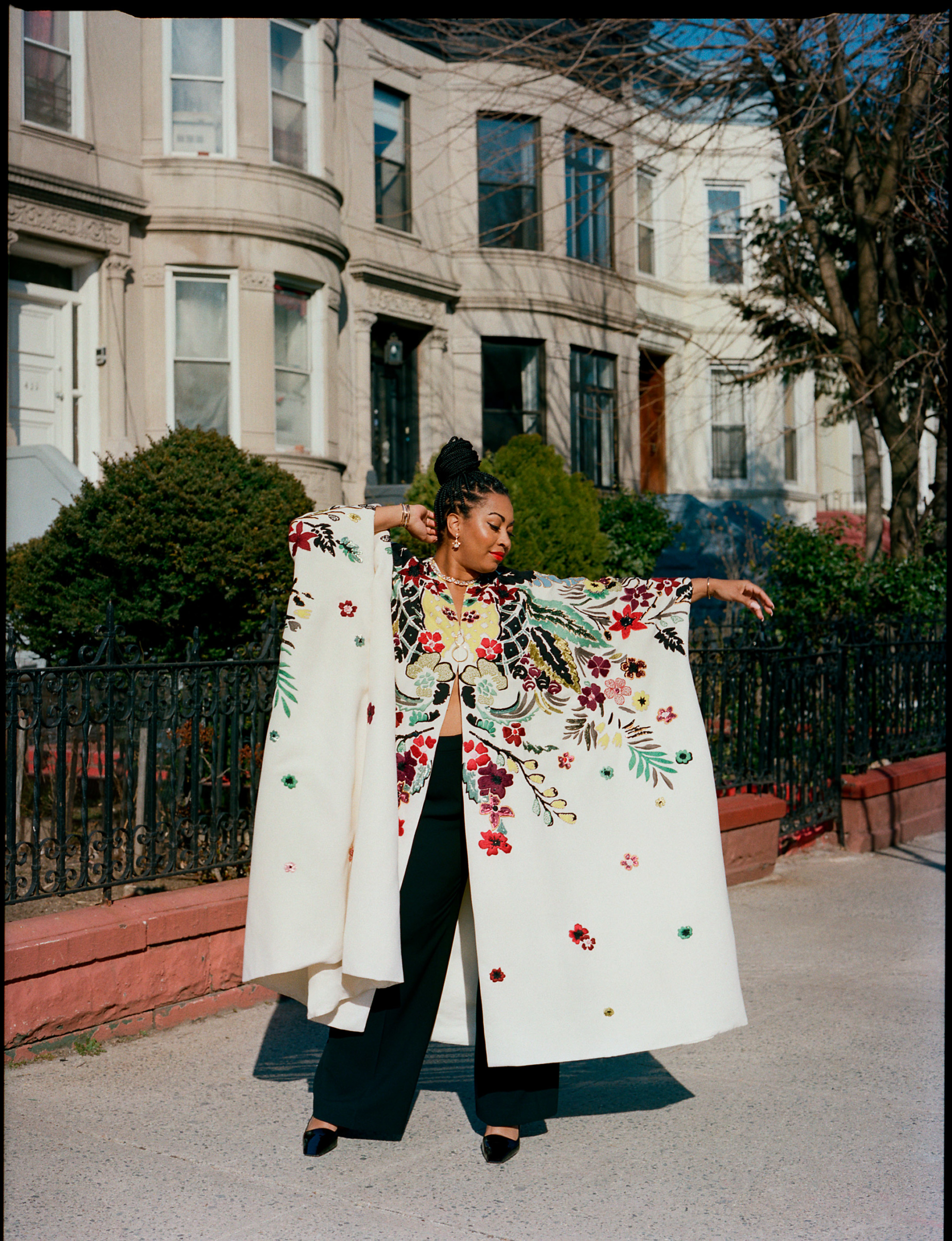
In this moment, Rachel Cargle is resting in her joy. She’s just moved into her favorite apartment in Brooklyn, New York; she’s enjoying the solitude of the new (virtual) normal and she’s finishing up writing her debut book. The multi-hyphenate activist, educator, entrepreneur and writer is known for her examinations of the intersections of race, feminism and womanhood, and does so through social media and her plethora of initiatives: The Great Unlearn, the Loveland Foundation, Elizabeth’s Bookshop & Writing Centre and Rich Auntie Supreme. Though her work contains many facets, each arm of Cargle’s portfolio reveals a singular objective: to center and protect her Black community.
Speaking with kindred spirit and fellow businesswoman Tamu McPherson of beauty, culture, fashion and wellness blog All the Pretty Birds, Cargle discusses her upbringing near Akron, Ohio, finding a non-traditional path to purposeful work and using her talents for empowerment, of others and self.
Tamu McPherson: What in your experience as a young person in Greene, Ohio put you on your pathway to what you’re doing now?
Rachel Cargle: Ohio was a really wonderful place for me to grow up because of my mother and the way she raised me. I had a very pleasant childhood, even in the midst of not understanding that we were very, very poor, and the experiences that I was having as a Black woman living in a very white space. But my mother instilled in me so much curiosity, and so much confidence, that I really enjoyed the experience of navigating the world. I also feel like she knew the type of world that I was existing in before I could even really comprehend what it meant for me to be the only Black girl in my elementary school, or to move through spaces without really having reflections of myself.
I think about Ohio springs and summers a lot. Even though New York City is the love of my life, and I can’t fathom ever leaving here, I definitely have a very soft spot for Ohio forever.
TMP: I hear you. As you know, I migrated to New York from Jamaica, and we were quite poor. I didn’t know that we were poor. And it just makes me feel like poverty is a state of mind and what your parents are nurturing you with is really what determines how you experience your life as a young person. What about your relationship with your mother and your older sisters? I get a sense that those relationships deeply shaped the way that you love women today.
RC: That’s very challenging to me. My relationship with my sisters is very complicated. My sisters are twelve years older than me and their whole adult lives have been in and out of drug addiction and in and out of alcoholism. For me to be able to go on to do something like this, and for my sisters to have gone on to make their decisions makes me think a lot about nature versus nurture, and has influenced my decision not to have children. I think that my sisters in particular are a constant reminder for me of the ways that Black women exist in the world. It informs how I love Black women and the sometimes fragility of our survival.
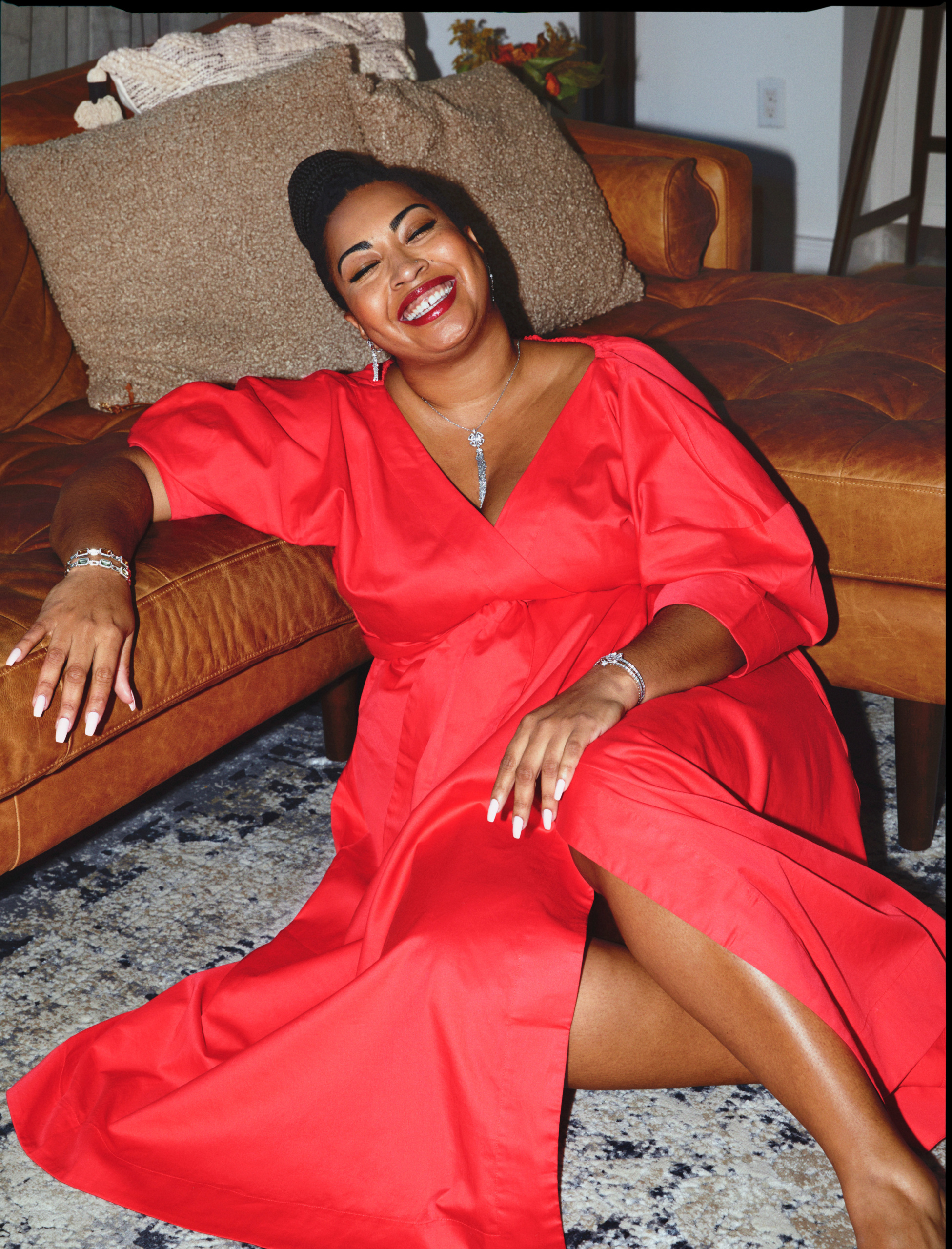
TMP: I obviously did not know about that. But I think that the great thing is that even though you’ve had those challenges in such intimate relationships, you are whole and that you want to continue to give love and to nurture women that you don’t even know. The Loveland Foundation is an example of that: you’ve created healing for Black women, for women like your sisters. You’re giving the gift of mental health to so many women and in such a critical way. And you’re dismantling the taboos and stigma that surrounds mental health and therapy.
RC: I think that a lot of my intent, and a lot of my motivation in my work, and particularly in the approach that the Loveland Foundation is recognizing that it definitely could have been me and I am deeply grateful that I was able to exist on the path that I am. When I started the Loveland Foundation, I imagined a ripple and I chose Black women and girls as the people who would be getting our initial support because they are the bedrock of families of communities, of churches, of organizations.
TMP: Your path has also led you to academia. How did your experiences at collegiate institutions propel you to create your own direction as a scholar?
RC: Learning was always a pillar of my existence. I enjoyed it; I leaned into it and I was always looking forward to it in one way or another. So, particularly in my experience attending Columbia University as an adult older than most college students, I was, again, very excited to be on campus and in the classroom. Then, at orientation when the dean is walking us around she says, ‘Oh, when you’re on campus grounds, it’s just like you’re back in 1842.’ And I thought, ‘No, that’s actually not where I prefer to be.’
It’s those microaggressions that wither away at you that really make you question so much. Columbia just continued to not show up for the Black students and the Black community. But, I also have to acknowledge the privilege that I had in that moment. I had been getting momentum with my writing so I already felt a lot more autonomy around my learning. What it ended up looking like was me curating my own syllabi: reaching out to these mainly queer BIPOC scholars and experts, and learning what I wanted to learn in the way I wanted to learn it from who I wanted to learn it from. The really fun part of the autodidactic and pursuing things as a public academic is the ability to pull resources that you might not have always even considered within the constraints of the institution. It was really revolutionary for me and it’s been really wonderful to witness other people see how I’ve been trying to move into this space, and then creating their own learning experiences, as well.
TMP: I did it like I was supposed to do it: I went through school, and then I figured out, at 26, that I didn’t want to be a lawyer, or I didn’t want to work in finance, and that I wanted to work in fashion. It’s taken me this long to even realize that I’m an entrepreneur because I went to all those institutions that trained me to work for someone. I think that we’re kindred spirits in terms of getting to where we are today.
RC: I love that you had that realization, as well.
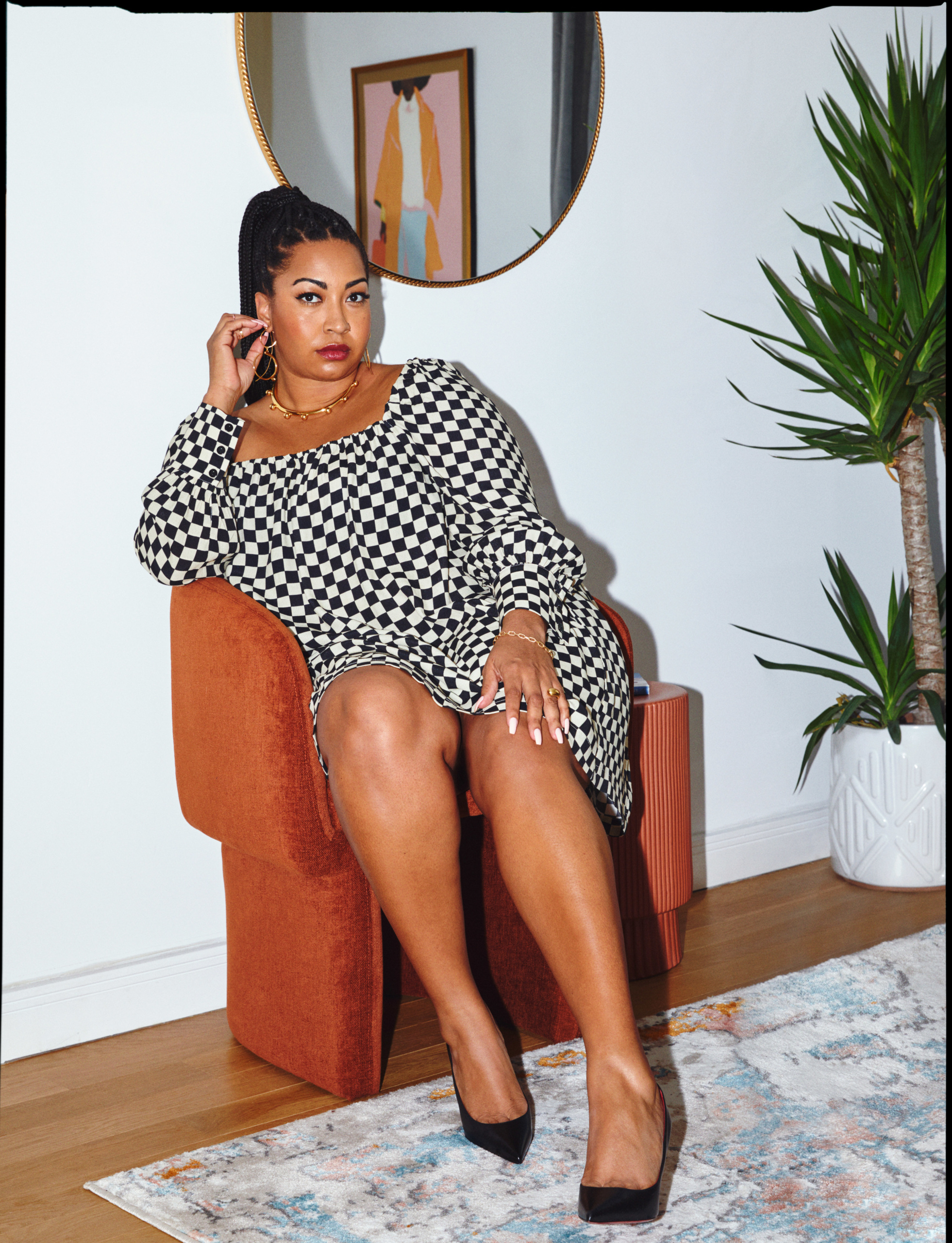
TMP: As an entrepreneur, you’ve structured your brand in such a way that from a sociological and anthropological standpoint is genius. The majority of your audience is white. You’ve figured out your brand of social justice, social activism and you know who you hold space for for healing.
RC: I was very methodical about how I built my company, once I started in the entrepreneurial world, even when I was just a babysitter and I was learning about women’s empowerment and pay equities. I took a lot of time pouring into how Oprah built Harpo Productions, and how Beyoncé built her brand. There are so many things that I disagree with both of those women in a variety of areas. There’s also so much that I adore of and learned from them in how they decided to build their careers on their terms. I decided early on that I was not going to be only known for surviving whiteness, or helping white people be less racist. I started to be intentional in being vulnerable and showing other aspects of me: this is me walking in fashion week; this is me writing about love; this is me moving into the world of philanthropy and doing something that centers my community. I am very proud of how I have been able to define myself within any industry I’ve decided to explore.
TMP: I feel that we are definitely in a space where people identify with one category, but I don’t think it’s sustainable or healthy. On social media now, there are a lot of pedestals, and I feel uncomfortable with all of those pedestals.
RC: In the most literal sense, starting Elizabeth’s Books & Writing Center was me diversifying to a physical business. If we could no longer connect to each other over the web, I could still do my meaningful work for the community.
TMP: I feel that’s what a lot of people are suffering from now. They’re proverbially putting all their eggs in one basket, which is fine, because this is a game of trial and error. It’s just the power of social media to put you there. I worry about what happens after.
RC: Especially in thinking about the anti-racism space, no one deserves to stay here for too long, because it will kill you. It’ll kill you with overwhelm.
TMP: As a female entrepreneur, how did you reconcile the work you do with actually structuring compensation? This is a public service, but you absolutely have to be compensated, and then you have to compensate your community that supports you.
RC: In stereotype, activists are supposed to fit in the struggling artists beat. I believe that we actually should be pouring resources into them so that their art can continue to serve us. It was new and scary, but it was necessary to explore the ways that we exchange this community, particularly within the Black and white audiences. And I hope that my demanding to be paid for the work opens lots of doors for other people to come here to be paid for their emotional labor, too.
TMP: I really want to talk about Rich Auntie Supreme because while society doesn’t dictate a picket fence anymore, we’re definitely pressured into getting married and we’re pressured into having children. How did this emerge, your desire to uplift women in your community who choose to not have children?
RC: You know, a phrase that has come up in my mind a lot is “a Renaissance of my own.” I decided a while ago that I knew I didn’t want children. I was a nanny for a very long time and so I felt like it was an educated decision. Instead, I’d like to join a group of women who are dedicated to their experience of enjoyment and luxury, and using all of the resources that come from not having children to pour into the community that we do love. That’s where the Auntie part of it comes in because I love being able to show up in ways that often our parents aren’t able.
TMP: The healing never stops for our community. We live in the families and the communities that we build. Something that feels so indulgent is going to liberate so many women.
RC: You know, I walked away from a marriage that was good. I just knew I wasn’t supposed to be there. We were such a celebrated couple and he was making six figures very young. There were all of these things that made it check every single box. When I got my divorce that was me saying, ‘This is good, but it’s not for me, and I trust myself to know what’s for me. So I’m going to walk away until I find what’s for me.’ That is what Rich Auntie Supreme is.
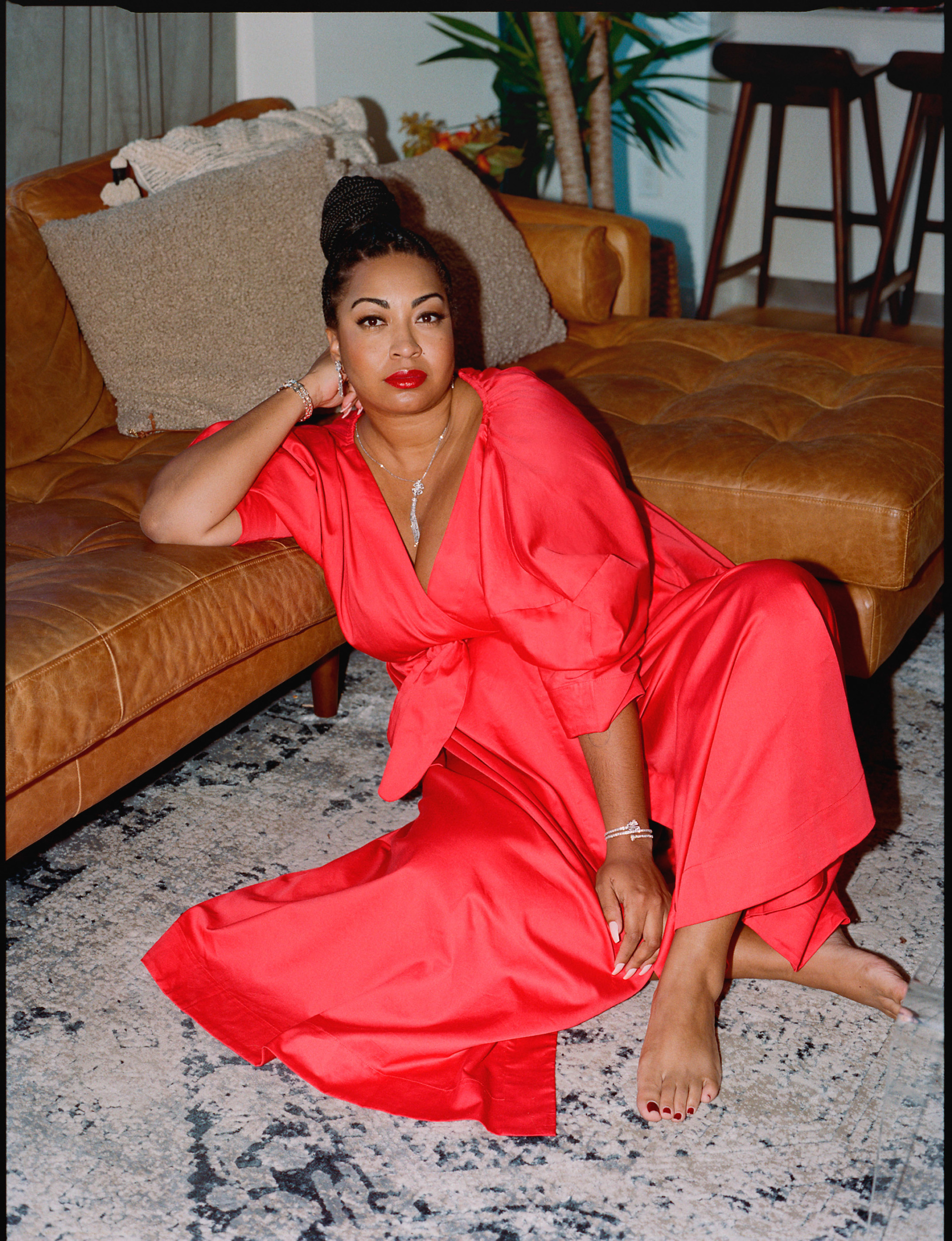
TMP: What is bringing you joy in your life right now? I think it’s being a Rich Auntie Supreme.
RC: I am deeply enjoying that, but I’m also enjoying solitude. I think that it is so glorious to wake up knowing I don’t have to jump on the train to go to a meeting in SoHo. And I just moved into the apartment of my dreams in New York. I feel like I’m existing as a special version of myself right now in my work, in my personal space, in my love life and in my creativity. I’m really resting in it, and I’m grateful.
TMP: I’m so relieved, because as we said before, a lot of activists are currently suffering due to the stress and demands of the work. I always say to people, I’ve worked in fashion, I’m a fashion person, I create content, and people say, ‘Oh, you’re an activist.’ I’m not. All I can do is build critical lenses for us to think because no one thinks critically anymore. I feel like social media is really dulling us.
RC: I first have to address the realities of people assuming that however a Black woman exists in the world that she’s an activist, that she is fighting for her life, that she is responsible for educating people. Like me, or any Black person finding ease, that is revolutionary. Existing is a political act, and I hate that you can’t just exist to be in fashion, that clothes on your body can’t just be on your body for joy; they have to be in resistance. Who would we be if our genius didn’t have to be applied to surviving white supremacy? I’m hoping that Black women, and Black people in general, can continue to explore how to use their skills, their joys, their passions in ways that have nothing to do with surviving whiteness.
TMP: Exactly. I definitely feel that we’re all woke right now. And on social media, we’re all sharing stuff to prove it. But I wonder, are we really breaking down and making sure that we truly understand what we’re sharing? Even if it’s the best piece of advice, the best theory, the best critical thought, at the speed with which we’re sharing, are we processing?
RC: Yes, and are we engaging with it? Are we considering what role we might play within this issue at hand? I think that that is critical for the learner and for anyone who is looking to be a meaningful part of their community. I think my core values show up in every single venture I have. My company is very rooted in a matriarchal system, not as in gender, but the values of education, support, rest, being intentional in who we partner with. Each brand is a new way to show up for my community.
Craving more culture? Sign up to receive the Cultured newsletter, a biweekly guide to what’s new and what’s next in art, architecture, design and more.

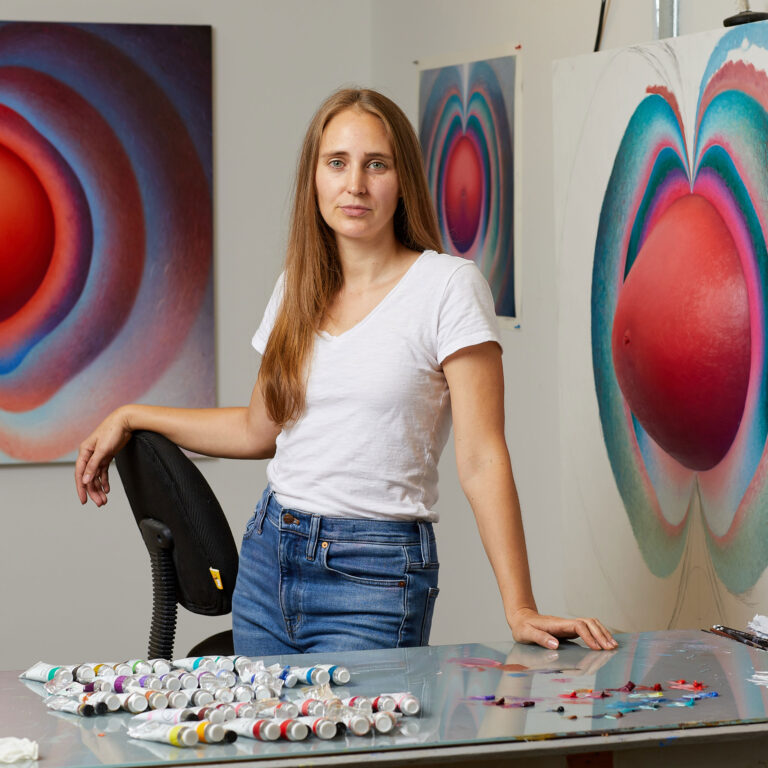


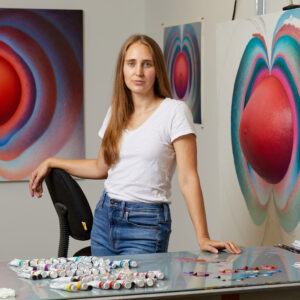





 in your life?
in your life?

